The forum was organized by the Vietnam Union of Friendship Organizations in coordination with the Saint Petersburg Foreign Affairs Committee (Russian Federation), the Vietnam - Russia Friendship Association, the Russia - Vietnam Friendship Association and the Russia - Vietnam Cooperation Development Promotion Fund "Tradition and Friendship".
The co-chairs of the workshop were Prof. Dr. Ruslan V. Kirichek, Rector of Saint Petersburg University of Information and Communications and Prof. Dr. Nguyen Dinh Duc, Chairman of the Council of the University of Technology - Vietnam National University, Hanoi .
Science and technology are key driving forces in Vietnam-Russia cooperation.
In his opening speech, Prof. Dr. Nguyen Dinh Duc said that in the context of Vietnam implementing Resolution 57-NQ/TW, considering science, technology, innovation and digital transformation as strategic breakthroughs, strengthening cooperation with Russia, a country with strong science and technology in biomedicine, energy, environment, etc., is of great significance.
 |
| Prof. Dr. Ruslan V. Kirichek (left), Rector of Saint Petersburg University of Information and Communications and Prof. Dr. Nguyen Dinh Duc, Chairman of the Council of the University of Technology - Vietnam National University, Hanoi co-chaired the workshop. (Photo: Dinh Hoa) |
Ms. Vu Thi Tu Quyen, Deputy Director of the Department of International Cooperation (Ministry of Science and Technology) provided an overview of scientific and technological cooperation between the two countries. She said that the two countries both promote the role of science and technology and set out long-term development strategies. In particular, Russia identified the period 2022-2031 as the "decade of science and technology", with the goal of enhancing the role of science in solving important tasks of society and the country, and expected domestic spending on research and development to reach at least 2% of GDP by 2030. Similarly, Vietnam issued Resolution No. 57-NQ/TW dated December 22, 2024, identifying science and technology as the key driving force for innovation, digital transformation, and improving competitiveness, aiming for Vietnam to become a developing country with modern industry by 2030 and a developed country with high income by 2045.
Ms. Quyen emphasized that Vietnam-Russia scientific and technological cooperation has a long tradition and is an inseparable part of the friendly and mutually beneficial relationship. Immediately after establishing diplomatic relations, the two sides prioritized scientific and technological cooperation through the 1959 Agreement between the Democratic Republic of Vietnam and the Soviet Union, followed by the 1992 Agreement on Scientific and Technological Cooperation between Vietnam and the Russian Federation, and the 2014 Agreement on Strategic Partnership in the Field of Education, Science and Technology. Through the Vietnam-Russia Joint Committee on Science and Technology and the Vietnam-Russia Intergovernmental Committee on Economic, Trade and Scientific and Technical Cooperation, cooperation between the two sides has brought about many results: from basic research, natural sciences, social sciences and humanities to peaceful nuclear energy, biotechnology, medicine, agriculture, information technology, automation and artificial intelligence.
In addition to bilateral cooperation, Vietnam and Russia also coordinate at multilateral forums such as the Association of Southeast Asian Nations (ASEAN), the Asia-Pacific Economic Cooperation (APEC), the International Atomic Energy Agency (IAEA), the World Intellectual Property Organization (WIPO) and standards, metrology and quality organizations.
Ms. Quyen stated that in the coming time, science and technology will continue to be an important bridge to promote understanding and trust between the two countries. She proposed that the two sides promote the Intergovernmental Committee mechanism as a mechanism for strategic orientation and coordination of scientific and technological cooperation, while promoting cooperation in bilateral and multilateral mechanisms, encouraging people-to-people exchanges, academic exchanges between institutes, schools, businesses and social organizations and prioritizing cooperation in the following areas: digital technology, artificial intelligence, clean energy, nuclear energy for peaceful purposes, new materials, advanced medicine, biotechnology, space technology - aviation... In addition, the two sides need to create conditions for science and technology enterprises to connect, exploit each other's markets, jointly develop new technologies and strategic technologies, and at the same time build a Vietnam - Russia science and technology cooperation center in priority areas.
New prospects
At the workshop, many presentations suggested the potential for Vietnam-Russia cooperation in many fields such as pharmaceuticals, environmental monitoring systems, research on new generation cancer drugs, space information, etc.
Professor, Doctor of Medicine Vladimir Moiseenko, Director of the Napalkov Oncology Center, People's Doctor of the Russian Federation, Member of the Correspondent of the Russian Academy of Sciences, warned of the dominance of pharmaceutical corporations in cancer treatment, causing treatment costs to be too high while effectiveness is limited. He called on Vietnam and Russia to coordinate research and optimize treatment regimens to improve effectiveness and reduce the financial burden on patients.
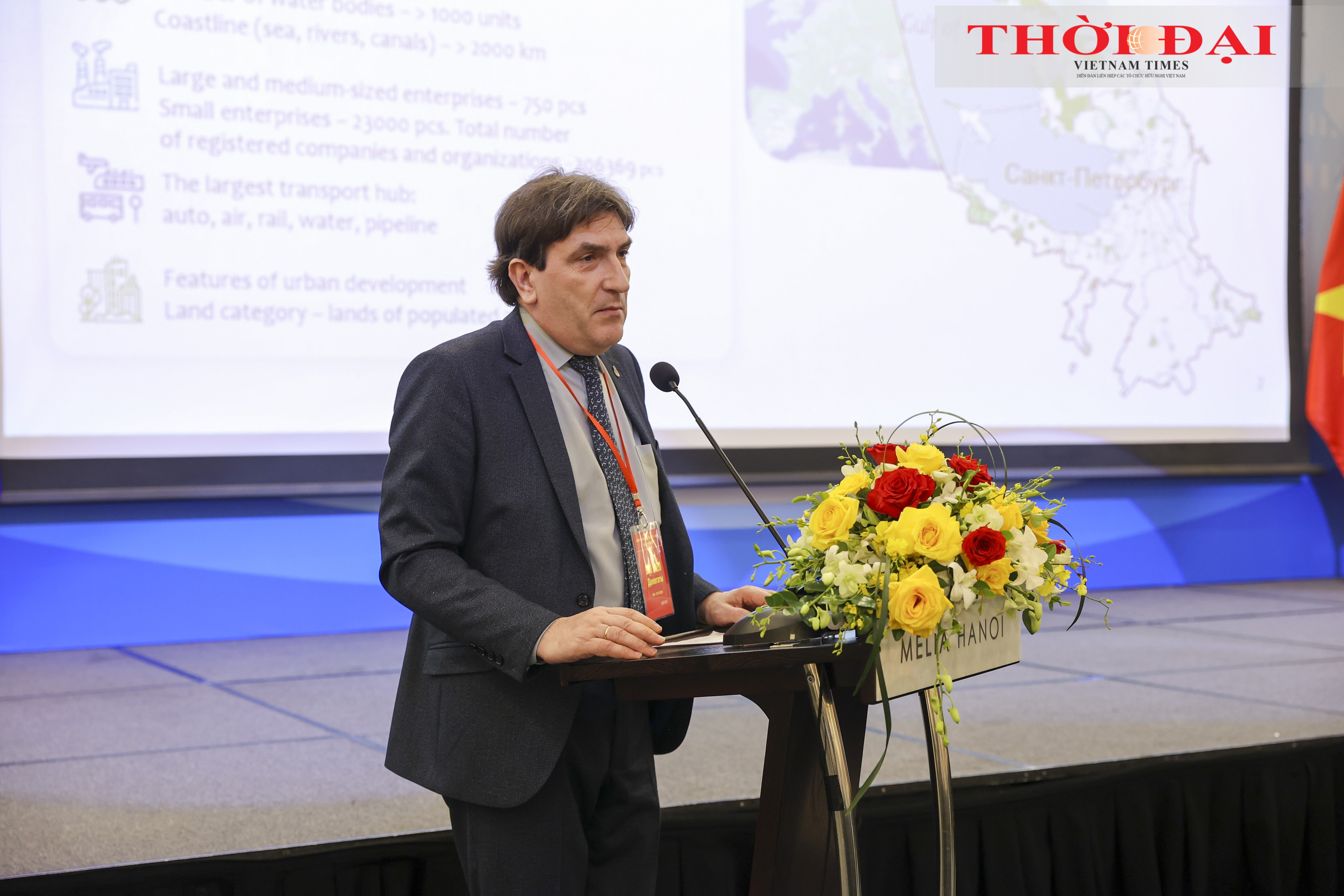 |
| Doctor of Geological and Mineral Sciences Ivan Serebritsky, Vice Chairman of the Saint Petersburg City Commission for Environmental Management and Ecology, presented a paper at the Workshop. (Photo: Dinh Hoa) |
Dr. Ivan Serebritsky, Deputy Chairman of the Commission for Environmental Management and Ecology, shared Saint Petersburg's experience in building a three-level environmental monitoring system (central, local, and grassroots), thereby suggesting directions for cooperation between research and training institutions of Vietnam and Russia. He said Saint Petersburg faces many environmental challenges, but has adopted a long-term strategy until 2035, focusing on building a culture of environmental protection and mobilizing the participation of the whole society. The city has relocated dozens of industrial establishments from the center, completely switched to using natural gas, and operated an air monitoring system with 27 automatic stations measuring more than 20 indicators, operating 24/7 with a cycle of 20 minutes/time, along with a number of mobile stations that can monitor up to 140 indicators. People can submit environmental complaints through both electronic and traditional channels. The government receives about 1,100 complaints each year, mostly related to air quality. The inter-agency environmental committee, which includes representatives from the central and city governments, has helped to address the issues quickly. The noticeable result is a 30% reduction in complaints about strange and unpleasant odors in the period 2023-2024.
Currently, Saint Petersburg also applies artificial intelligence, integrating data from thousands of traffic cameras to assess air quality in real time. The results show that air quality has reached a safe level, proving the effort to combine technology, management and social consensus in environmental protection.
A typical example of scientific and technological cooperation between Vietnam and the Russian Federation is the Vietnam - Russia Tropical Center. According to Dr. Andrey Nikolaievich Kuznetsov, General Director of the Russian side, the Center was established in 1988 on the basis of the Intergovernmental Agreement signed between the two States. From the beginning, the Center developed 3 main research fields, built 3 branches in 3 regions of Vietnam, and at the same time, the Russian side established laboratories in Moscow, including the Dioxin laboratory with the most modern equipment at that time. Personnel were strictly selected, with high requirements on health, professional qualifications and Russian language. Many Vietnamese officials were trained in Russia, forming a common scientific force for the Center. Currently, the Center has 19 laboratories, 3 climate testing stations, 3 biological stations, 1 scientific research ship and nearly 1,000 Vietnamese - Russian officials and experts. The 50/50 balanced financial model is considered by him to be a "flexible and effective model" for scientific and technological cooperation. In May 2024, the Center received the scientific research vessel "Professor Gagarin", opening a new phase of cooperation in research on tropical seas and oceans.
According to Dr. Kuznetsov, 57 Russian scientific and educational organizations have participated in regular cooperation with the Center. The fixed and mobile laboratories, along with the training program for highly qualified personnel, will contribute to strengthening national sovereignty, especially in the research of natural pathogens and disease forecasting.
Delegates at the workshop highly appreciated the sharing of Russia's achievements in science, technology and medicine and hoped that Vietnam could receive and apply them to serve the people.
Concluding the workshop, Prof. Dr. Nguyen Dinh Duc affirmed that the potential for Vietnam - Russia cooperation is huge and feasible, especially in the fields of health, tourism, new technology and human resource training. He suggested that there should be more in-depth thematic forums to realize the opportunities; each individual and organization should be a "soldier on the people's foreign affairs front" to promote cooperation. The workshop opened an important foundation for many future activities; opinions will be compiled by the Vietnam Union of Friendship Organizations and recommended to central agencies for implementation. He emphasized that the "three-house" model - State, school, enterprise - in which enterprise plays a key role, will be the key to putting Vietnam - Russia cooperation plans into practice.
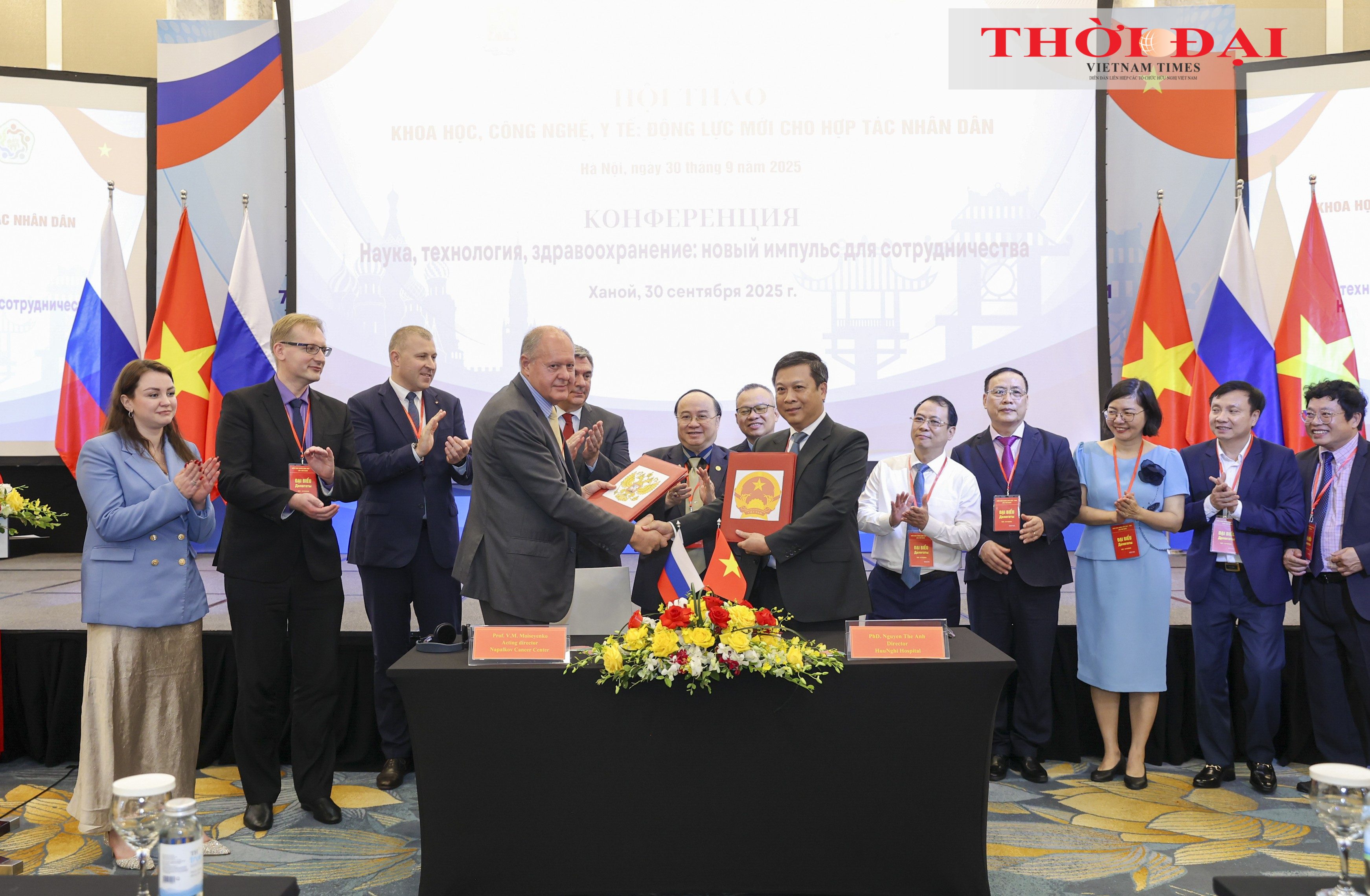 |
| Leaders of Friendship Hospital and Napalkov Oncology Center exchanged a Memorandum of Understanding on cooperation. (Photo: Dinh Hoa) |
On this occasion, delegates witnessed the signing ceremony of the Memorandum of Understanding (MOU) between Friendship Hospital (Vietnam) and Napalkov Oncology Center (Russian Federation).
Source: https://thoidai.com.vn/khoa-hoc-cong-nghe-y-te-dong-luc-moi-cho-hop-tac-viet-nga-216659.html


![[Photo] Dan Mountain Ginseng, a precious gift from nature to Kinh Bac land](/_next/image?url=https%3A%2F%2Fvphoto.vietnam.vn%2Fthumb%2F1200x675%2Fvietnam%2Fresource%2FIMAGE%2F2025%2F11%2F30%2F1764493588163_ndo_br_anh-longform-jpg.webp&w=3840&q=75)





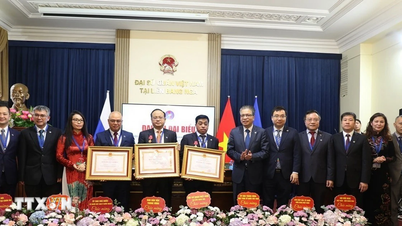

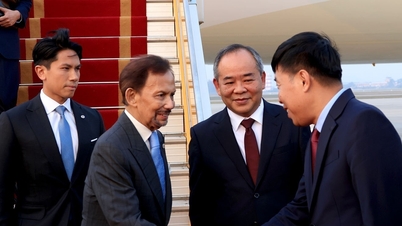

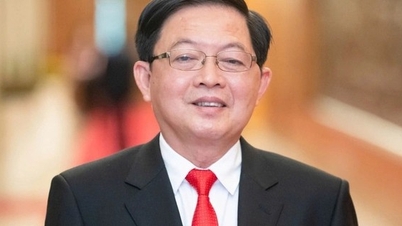




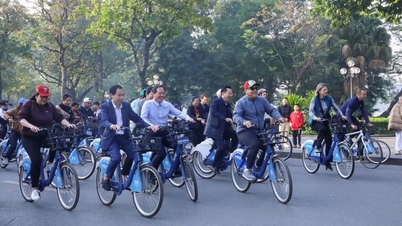





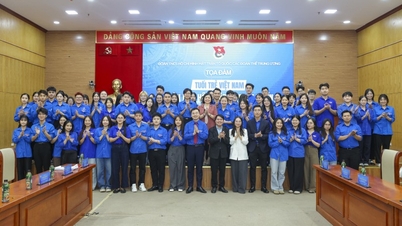

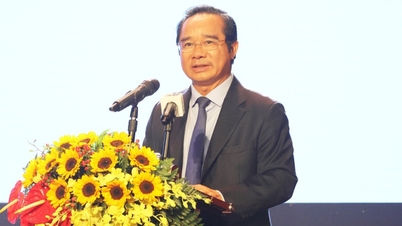
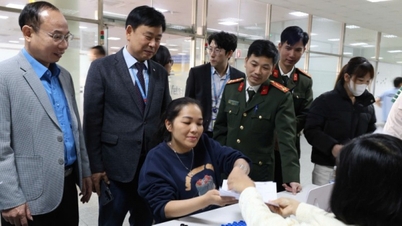
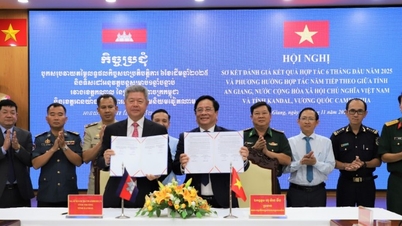
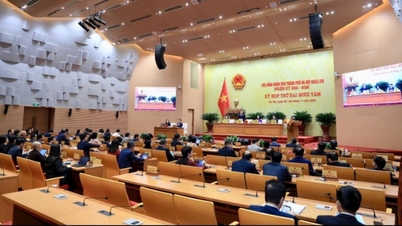






































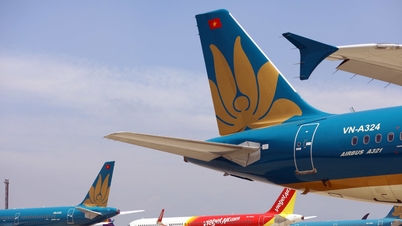







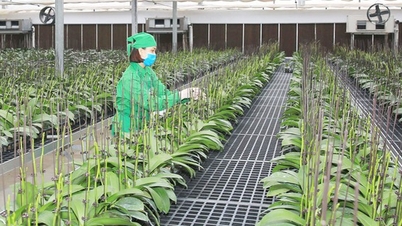




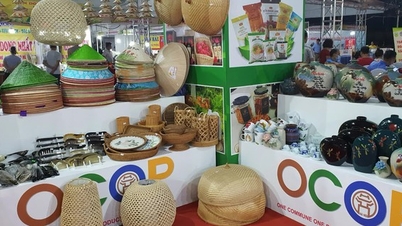






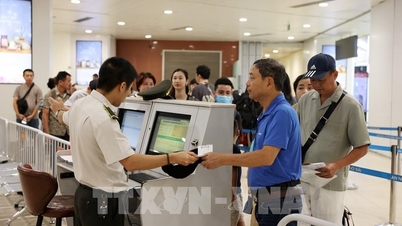


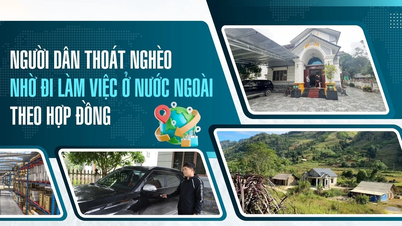














Comment (0)